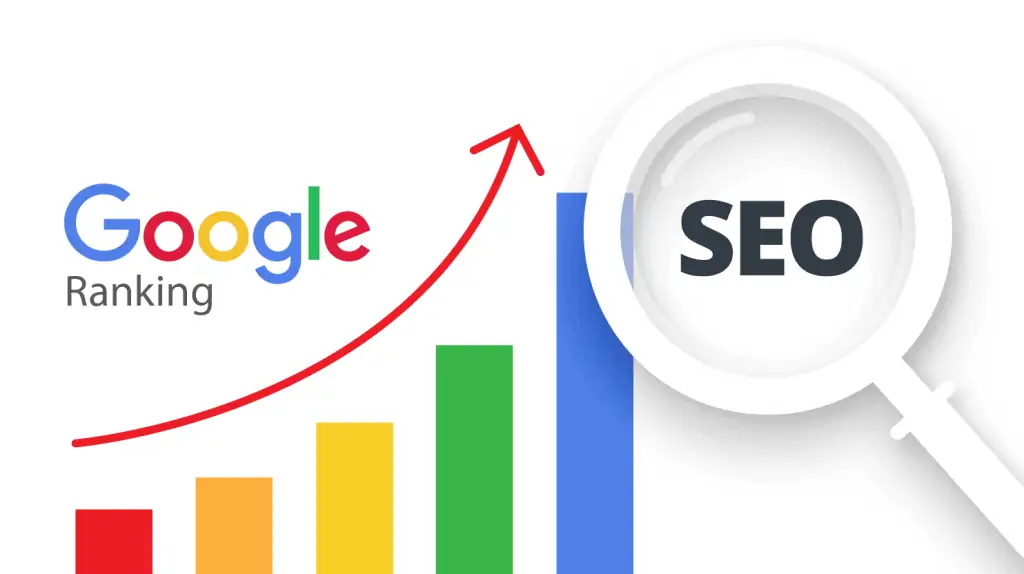In today’s digital age, having a solid social media strategy is crucial for any business or organization. With so many platforms and tools available, it can be overwhelming to know where to start. Here is a comprehensive guide to help you create a successful social media strategy: 1. Define Your Goals 2. Choose the Right Platforms 3. Develop Your Content Strategy 4. Build Your Social Media Team 5. Engage with Your Audience 6. Monitor and Measure Performance 7. Run Social Media Ads 8. Stay Up-to-Date with Industry Trends By following these steps and staying committed to your strategy, you’ll be well on your way to creating a successful social media presence that resonates with your audience and drives results for your business. Need help creating a social media strategy? Contact us at Igrace Mediatech to develop a customized plan that meets your unique needs and goals.
The Power of SEO: How to Boost Your Online Visibility
In today’s digital landscape, having a strong online presence is crucial for any business or organization. One of the most effective ways to increase your online visibility is through Search Engine Optimization (SEO). Here are some actionable tips to help you harness the power of SEO: 1. Keyword Research 2. Optimize On-Page Elements 3. Create High-Quality Content 4. Build High-Quality Backlinks 5. Improve Your Website’s User Experience 6. Use Social Media to Your Advantage 7. Monitor and Analyze Your Results By implementing these SEO strategies, you’ll be well on your way to boosting your online visibility and driving more traffic to your website. Remember, SEO is a long-term game, so stay consistent and patient. Need help improving your SEO? Contact us at Igrace Mediatech to develop a customized SEO strategy that drives results.
Web Development Trends to Watch in 2024
Discover the top web development trends to watch in 2024, from AI integration to sustainable web design. Stay ahead of the curve with our expert insights and innovative solutions. Contact us to build a cutting-edge web presence.
The Importance of Mobile-Friendly Websites in Today’s Digital Age
In today’s digital age, having a mobile-friendly website is no longer a luxury, but a necessity. With the majority of internet users accessing websites through their mobile devices, a mobile-friendly website is crucial for any business or organization. Here are some reasons why: 1. Improved User Experience A mobile-friendly website provides an optimal viewing experience for mobile users, with easy navigation, readable content, and minimal scrolling. 2. Increased Mobile Traffic With most internet users accessing websites through mobile devices, a mobile friendly website ensures you don’t miss out on potential traffic. 3. Better Search Engine Rankings Google prioritizes mobile-friendly websites in its search engine rankings, making it essential for improving your online visibility. 4. Enhanced Conversions A mobile friendly website leads to increased conversions, as users can easily complete tasks and achieve their goals. 5. Competitive Advantage A mobile-friendly website sets you apart from competitors who haven’t adapted to the mobile-first approach. 6. Improved Brand Credibility A mobile-friendly website reflects positively on your brand, showcasing your commitment to user experience and adaptability. 7. Increased Engagement A Mobile-friendly websites lead to increased engagement, as users are more likely to explore and interact with your content. 8. Faster Load Times A Mobile-friendly websites typically have faster load times, improving user experience and search engine rankings. 9. Better Analytics Mobile-friendly websites provide more accurate analytics, helping you understand your audience and improve your strategy. 10. Future-Proofing A mobile-friendly website ensures you’re prepared for the continued growth of mobile internet usage. In conclusion, a mobile-friendly website is essential for any business or organization in today’s digital age. By prioritizing mobile-friendliness, you’ll improve user experience, increase mobile traffic, and stay ahead of the competition. Need help making your website mobile-friendly? Contact us at Igrace Mediatech to develop a responsive and engaging website that drives results.
How to Optimize Your Website’s Loading Speed
In today’s digital age, a website loading speed is crucial for user experience, search engine rankings, and ultimately, conversion rates. A slow-loading website can lead to high bounce rates, frustrated visitors, and a loss of potential customers. Here are some actionable tips to help you optimize your website’s loading speed: 1. Optimize Images 2. Minify and Compress Files 3. Leverage Browser Caching 4. Use a Content Delivery Network (CDN) 5. Optimize Server Response Time 6. Reduce HTTP Requests 7. Enable Keep-Alive 8. Use a Fast Theme or Template 9. Regularly Update and Monitor 10. Consider a Website Speed Audit By implementing these optimization techniques, you can significantly improve your website loading speed, enhance user experience, and boost search engine rankings. Remember, every second counts!
The Benefits of Responsive Web Design for Your Business
Discover the benefits of responsive web design for your business, including improved user experience, increased mobile traffic, and better search engine rankings. Contact us to develop a responsive website that drives results.
10 Essential Features to Include in Your Company Website
In today’s digital age, having a professional website is crucial for any business. A well-designed website can help establish your brand, build trust with your audience, and drive conversions.
Meet Edafe Great, the Visionary CEO of Igrace Mediatech
In the world of technology, innovation, and entrepreneurship, Edafe Great stands out as a shining star. As the CEO of Igrace Mediatech, he has revolutionized the digital landscape with his cutting-edge solutions and visionary leadership. Let’s delve into the inspiring journey of this remarkable individual, exploring his roots, achievements, and the driving forces behind his success. Early Life and Education Hailing from Delta State, Nigeria, Edafe Great was born with a passion for learning and a keen interest in technology. He pursued his academic dreams at Delta State University, earning a Bachelor’s Degree in Economics Education. This solid foundation in economics and education laid the groundwork for his future endeavors. Professional Journey Edafe Great’s professional journey is a testament to his dedication and perseverance. He worked with various tech companies, both remotely and onsite, gathering invaluable skills and experiences that would later shape the trajectory of Igrace Mediatech. His exposure to diverse work environments and technologies honed his expertise, preparing him for the challenges and opportunities that lay ahead. The Birth of Igrace Mediatech In January 2021, Edafe Great took the bold step of founding Igrace Mediatech, a company that would go on to redefine the boundaries of digital excellence. With a clear vision and unwavering determination, he navigated the challenges of building a startup, assembling a talented team, and developing innovative solutions that would disrupt the status quo. The Perfect Match The Perfect Match Facebook Community, a vibrant and supportive space created by Edafe Great in 2018 with a mission to connect people and touch lives. Since its inception, the community has been a catalyst for love, relationships, and personal growth, resulting in over 100 couples and thousands of meaningful connections. But the impact doesn’t stop there. Through our Touching Lives project, we’ve extended our reach to support thousands of Nigerians in need, providing a platform for members to give back and make a difference. Personal Life Edafe Great’s personal life is a beautiful reflection of his professional accomplishments. He is happily married to Vera Amarachukwu Great, and together, they are blessed with a lovely daughter, Leilani. This loving family provides the support and inspiration that fuels his entrepreneurial spirit. Leadership and Vision As the CEO of Igrace Mediatech, Edafe Great’s leadership is characterized by his unwavering commitment to innovation, customer satisfaction, and team empowerment. His vision for the company is to create a digital ecosystem that fosters growth, collaboration, and inclusivity. Under his guidance, Igrace Mediatech has become a beacon of hope for businesses and individuals seeking to harness the power of technology. Conclusion Edafe Great’s remarkable journey serves as a testament to the power of hard work, dedication, and visionary leadership. As the CEO of Igrace Mediatech, he continues to inspire and empower individuals and businesses alike, leaving an indelible mark on the digital landscape. Join us in celebrating this extraordinary individual and the remarkable achievements of Igrace Mediatech.
The Benefits of Online Courses for Professional Development
In today’s fast-paced and rapidly changing work environment, professional development is essential for career advancement and staying ahead of the curve. Online courses offer a convenient and flexible way to upskill and reskill, providing numerous benefits for professionals looking to enhance their careers. Increased Flexibility Online courses allow professionals to learn at their own pace, anytime, and anywhere, making it easier to balance work and personal commitments. Improved Accessibility Online courses reach a wider audience, breaking geographical barriers and providing access to high-quality education and training. Enhanced Skillset Online courses offer specialized training, enabling professionals to develop new skills and enhance their expertise in specific areas. Career Advancement Online courses demonstrate a commitment to professional development, making professionals more attractive to potential employers and enhancing career prospects. Cost-Effective Online courses reduce costs associated with traditional classroom-based learning, such as commuting and accommodation. Self-Directed Learning Online courses promote self-directed learning, encouraging professionals to take ownership of their development and learning outcomes. Access to Expertise Online courses provide access to industry experts and thought leaders, offering valuable insights and knowledge. Networking Opportunities Online courses offer virtual networking opportunities, connecting professionals with like-minded individuals and potential collaborators. Best Practices for Online Learning Define learning objectives and outcomes. Select courses from trusted and accredited institutions. Plan dedicated time for learning. Participate in discussions and interact with instructors and peers. Implement learned skills in real-world scenarios. Tools and Resources for Online Learning Utilize platforms like Verava.com.ng, Moodle or Blackboard for course management. Leverage tools like Zoom or Skype for virtual classes and meetings. Use tools like Slack or Trello for team collaboration and communication. Conclusion Online courses offer a flexible and accessible way to enhance professional development, providing numerous benefits for career advancement and personal growth. By leveraging online learning opportunities, professionals can stay ahead of the curve and achieve their goals.
The Role of Website Development in Enhancing User Experience
In today’s digital age, a website is more than just an online presence – it’s a crucial aspect of a business’s success. A well-designed and developed website can make all the difference in enhancing user experience, driving engagement, and ultimately, converting visitors into customers. What is User Experience? User experience (UX) refers to the emotions, attitudes, and behaviors of individuals when interacting with a product, system, or service. In the context of website development, UX focuses on creating a website that is intuitive, easy to navigate, and provides value to the user. The Importance of Website Development in UX A responsive website adapts to different screen sizes and devices, ensuring a consistent user experience across various platforms. A well-organized and intuitive navigation menu helps users find what they need quickly and easily. A website that loads quickly reduces bounce rates and improves user satisfaction. A mobile-friendly website ensures a seamless user experience on smaller screens. Clear and concise content, paired with appropriate visuals, enhances user engagement and understanding. Best Practices for Website Development in UX Understand your target audience’s needs, behaviors, and preferences. Design an intuitive interface that guides users through your website. Ensure a seamless user experience across various devices. Continuously test and refine your website to improve user experience. Tools and Technologies for Website Development in UX Build a solid foundation with these programming languages. Utilize CMS options like WordPress or Drupal to streamline website management. Leverage design tools like Sketch, Figma, or Adobe XD to create visually appealing designs. Conclusion Website development plays a vital role in enhancing user experience. By prioritizing responsive design, intuitive navigation, fast loading speed, mobile-friendliness, and accessible content, you can create a website that resonates with your target audience and drives business success.










